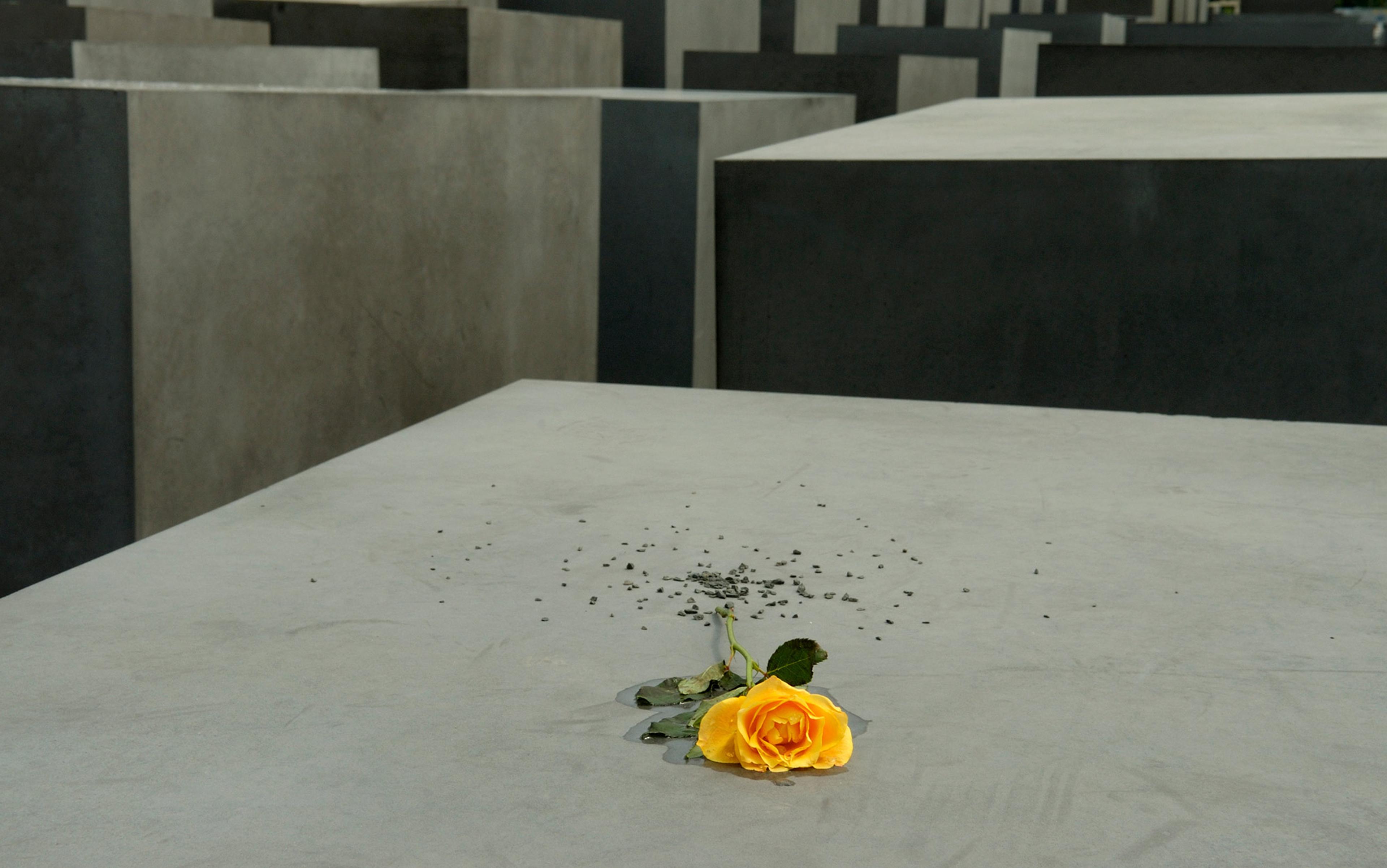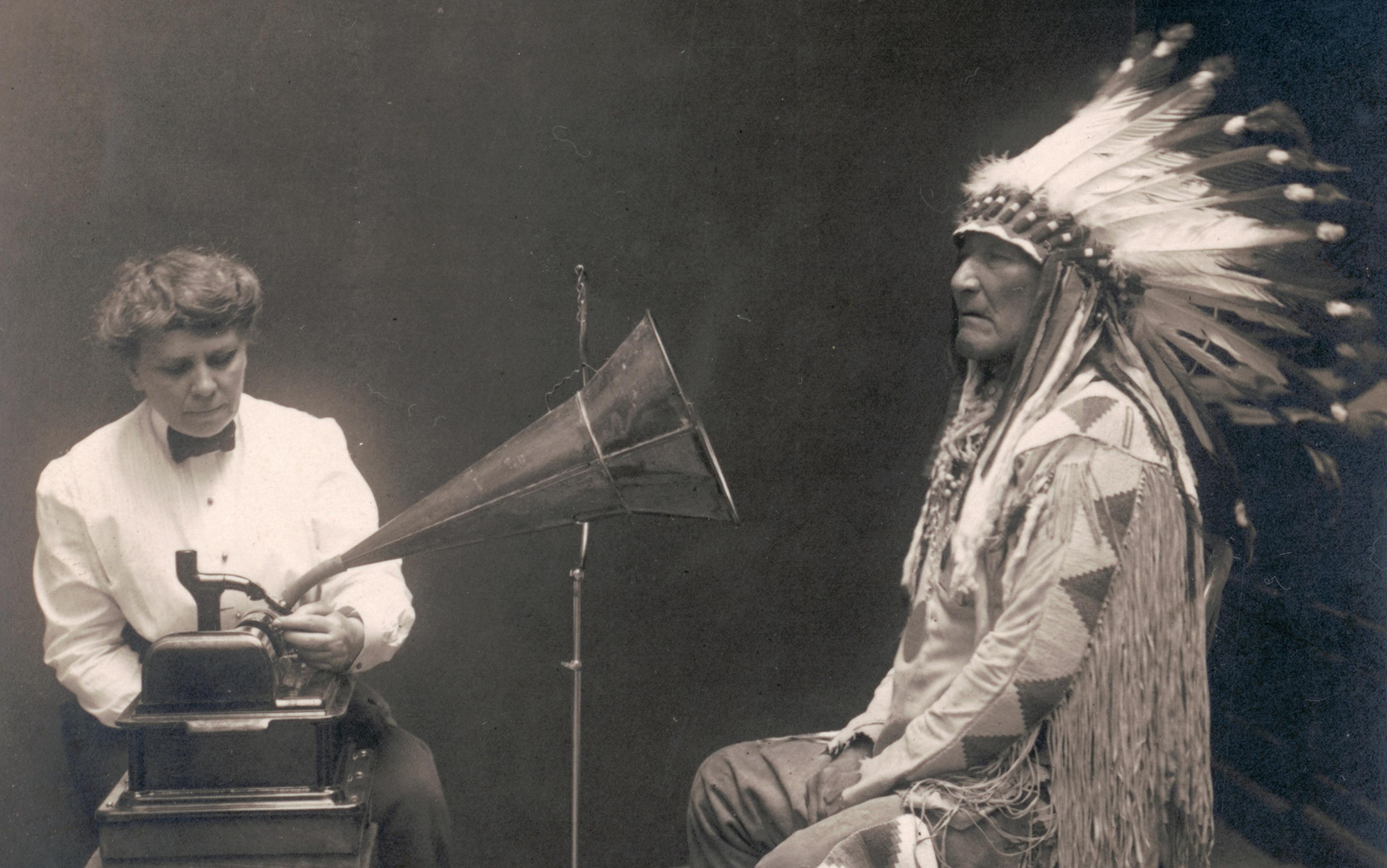As a country, the United States enforced slavery and segregation, engaged in bombings that killed civilians all over the world, imprisoned alleged ‘conspirators’ under false pretences during the Red Scare, and on and on. The US continues to grapple with devastating harms caused by the state, and it isn’t alone. Nearly every country and every organisation that has wielded power for any length of time has a record of moral harms.
The Catholic Church subjugated, forcibly converted, murdered, and abused millions of people across continents. The legacy of the residential school system, through which the Church abducted, forcibly converted, abused and even killed Native children in the US and Canada remains an ongoing scandal, one Pope Francis is trying to address. Germany, Rwanda, the Balkans, Sudan, Turkey and Myanmar all have genocides in their history (and that list is hardly exhaustive). Most of Europe and many countries in the Middle East and east Asia have histories of colonialism that include the occupation of other states, extraction of resources, and the oppression, enslavement and murder of local populations.
The individual people who perpetrated these acts are in most cases long dead, but the states and organisations remain. Individuals can commit heroic acts and horrible crimes, but so can states and organisations. Neil Armstrong walked on the Moon; the US put him there. President Andrew Jackson ordered the forcible and violent displacement of tens of thousands of Native people, killing thousands; the US, the nation, committed genocide. Armstrong and Jackson are dead but the US still exists, and the fact that states and organisations outlive individual actors creates the problem. In the US, we’re happy to claim collective responsibility for Apollo 11. Yet as a community, we are uncomfortable acknowledging collective responsibility for acts of genocide perpetrated against Native people. If we want to take collective responsibility for Apollo 11, then we should be willing to reckon with taking responsibility for genocide, too.
The fact is that collectives can act. Some of those acts are analogous to acts of individuals; in the case of smaller collectives, they might even be the same. I can buy a pizza; the philosophy department can buy a pizza; the US can buy a pizza (though, usually, the US goes a bit larger than a pizza). These actions vary mostly based on procedures required for the purchase to take place. Both individuals and collectives can buy things; both individuals and collectives can act; and both individuals and collectives can take positions. I can condemn the Russian invasion of Ukraine; the US, collectively, can condemn the Russian invasion of Ukraine.
But there are some acts that can be undertaken only by collectives. For example, states declare war; individuals don’t. This is because collectives coordinate the behaviour of many individuals. Acts of governance aren’t things individual people can do (unless operating as agents of the collective), because those acts of governance coordinate the behaviour of many people. An individual can commit crimes against humanity but acts such as maintaining institutions of slavery and segregation are collective acts. Those are things that the US did, acting collectively.
So just how does a collective act? There are three stories to account for the way this occurs. These narratives are not mutually exclusive, so feel free to mix and match.
The most prominent view is that groups are formed and act based on ‘collective intentionality’. Basically, a group of individuals shares a set of beliefs about how the world is, and those individuals (by virtue of all sharing those beliefs) create a collective identity, which then allows for collective action. From this perspective, the existence of the US depends collectively on members of the US holding shared beliefs, which include the belief that the US is a country, and that the country has a Constitution. (If no one believed that there was such a country, then there wouldn’t be one.) The existence of the US is established by that shared belief, but so are a range of facts about how the US works, including how the collective is governed (as in the three branches of government and the powers of those branches).
This does not mean that the US is ‘just made up’ or that its existence is arbitrary. It just means that the beliefs of people are necessary for the US to continue existing as a collective identity. Some of the beliefs about the US are grounded by fact. There is a Constitution of the United States. Some of the beliefs about the US are grounded by the shared agreement and acknowledgement of the belief within the group.
Weird beliefs are not in danger of undermining the existence of the US unless a sufficiently large portion of the collective adopts them
This also does not mean that everyone in the community must share those beliefs. There are some people who might not believe the US is a country; there may be some people who might not believe the US has a Constitution. It is enough if, generally, people believe in the US. The US is not in danger of falling apart because your drunk uncle believes that the US is actually a corporation, not a country, that was created in 1910 by a cabal of bankers at Jekyll Island who supplanted the Constitution in 1913. Weird beliefs are not in danger of undermining the existence of the US unless a sufficiently large portion of the collective adopts them.
In this first story, a collective is formed by the collective beliefs of the members. That collective also acts through the collective beliefs of the members, either directly as a result of belief or through the processes (like the Constitutional processes) that govern the collective.
The second story holds that collectives need not have any beliefs at all. Rather, collectives act when the behaviours of individuals are coordinated in any way. The US acts when the members of the group largely behave in a similar, patterned manner. Think of individuals buying and selling on the stock market. Individuals may all have different beliefs that inform their behaviour, but if they’re mostly buying, then the values of that market go up over time and the behaviour of the group (taken together) is the behaviour of the collective.
The first story gives us the most straightforward account of how declared acts of collectives work, for example establishing the formal structures of the US government. The second story gives us an account of how a collective can act without a formal declaration or the clear structures of the government. For example, the US has become increasingly urbanised over the past century. More people are moving out of rural areas and towards cities. This shift is not the result of an explicit, collective belief that we have. Rather, it is something that we are doing collectively over time, through a set of behaviours. Not everyone is moving to the city; this is an expression of a pattern within the US. There’s a good argument that acts arising from this second story aren’t appropriate sources of blame, because they’re not things that any individual (much less the collective) may actively believe should be done. So, I’d like to set the second story aside and focus on the first and third.
The third story is formal. The US exists because of the collective attitudes of the people. The US also has a formal way of making decisions, namely through the explicit branches of government outlined in the Constitution. Not all collectives have such a formal structure; collectives that don’t have such a structure can act only through the first and second stories. However, the big collectives that are the source of moral concern here (the US and other countries; the Catholic Church and other religious institutions; corporations and nongovernmental organisations) all have formal structures for making decisions and acting.
Formal structures supported by collective beliefs underwrote both great achievements and atrocities
In the US, there is a formal process for declaring war. Even if most or even the majority of people in the US did not believe that the US was declaring a war, it would be sufficient if Congress did. Why? Because Congress is the formal structure through which the US declares war. That’s how the collective works and, as long as we collectively believe that the US is governed by the Constitution, those formal structures will be enough for the US to declare war.
It’s worth noting that a collective belief doesn’t even have to be held by a majority of the people in a community to be dominant. Rather, the way that collective beliefs work often gives more weight and importance to those who have the ability to act as individuals within the collective. That means that a child who has no political agency, and believes that there are no countries, matters less to the collective beliefs than an adult. Unfortunately, it also means that the beliefs of the disenfranchised and systematically oppressed don’t contribute to the collective of the US as much as beliefs of power-players. (This seems at odds with the idea of democracy, which holds that all members of the community should have more-or-less equal standing to govern the collective and its acts.)
The first and third stories show us how to evaluate the moral status of the US, where formal structures supported by widespread collective beliefs underwrote both great achievements and atrocities. The coordinated behaviour that culminated in the space programme, victory in the Second World War and other things for which we want to take credit as a country resulted from the deliberate coordination of action through the formal structures of the government and collective beliefs. But so did the great moral atrocities like slavery and oppression.
Acts of collectives often have moral dimensions, and may be morally praiseworthy or blameworthy. The Holocaust is perhaps the most widely discussed instance of collective blame and responsibility. The German state (along with collaborating governments) committed genocide, targeting (among others) Jews, Roma and other ethnic minorities, LGBTQ+ people, and people with disabilities. In the years that followed, the state also recognised collective responsibility for that action, and set out to pay restitution to the groups and the individuals that it had harmed.
‘Germans deported them. Germans burned numbers on their forearms. Germans tried to dehumanise them, to reduce them to numbers, to erase all memory of them in the extermination camps. They did not succeed,’ said the German president Frank-Walter Steinmeier when he visited the Holocaust memorial Yad Vashem in Jerusalem on 23 January 2020. ‘Germany’s responsibility does not expire. We want to live up to our responsibility. By this, you should measure us.’
Consider two discrete sets of phrasings here: ‘Germans [did x]’ and ‘Germany’s responsibility for [x]’. President Steinmeier does not actually say ‘Germany [did x]’ in this case, but he does acknowledge collective responsibility for the actions of various Germans, because they were acting on behalf of and as agents of the German state. He acknowledges collective responsibility, in line with the position of the German government in the years after the Second World War.
When we wrestle with the legacy of slavery in the US, white people will sometimes respond that they did not personally own slaves
But there’s something else curious here: Steinmeier was born in 1956, more than a decade after the end of the Second World War. He is speaking in an official capacity on behalf of the state, even as most members of the state at the time were not alive during (much less involved with) the perpetration of the Holocaust. Steinmeier’s point is that, irrespective of personal responsibility (and there were individuals who held personal responsibility: Hitler, Himmler, Eichmann, Goering, etc), the state took the actions, and the state is responsible. As such, the state paid restitution.
Like the US president Jackson, the architects and perpetrators of the Holocaust are dead (though perhaps, if not to a person, then pretty close). The people acknowledging collective responsibility for the history of Germany are people who carry no individual responsibility. President Steinmeier could say: ‘Germany has a collective responsibility’ and ‘No living German is individually responsible.’ There is no contradiction between those two things.
No individual living American is responsible for slavery, nor the Trail of Tears. If and when there are living individuals who are responsible for such crimes, there should be individual accountability. However, the state that perpetrated those acts exists. The United States engaged in a collective action to maintain slavery, to displace and kill thousands of Native people. Even if there is no present individual, there is a present collective.
Individual and collective responsibility can of course be intertwined. The US is responsible for the bombing campaigns in Cambodia; Henry Kissinger is personally responsible for those campaigns too, as a major influencer of that policy. The US sanctioned slavery; there were individual lawmakers and slave owners who had a much higher level of personal responsibility than (for example) the Quaker abolitionists in the US.
The Netflix documentary Pray Away (2021) involves several figures in the ‘conversion therapy’ movement, the attempt to ‘pray away the gay’ that includes destructive pseudo-psychiatric practices resulting in serious damage to LGBTQ+ people. The documentary considers the responsibility of groups that advocated and performed these practices, including Exodus International, the Family Research Council and several others. It also includes interviews with John Paulk, Julie Rodgers, Randy Thomas and others who were personally involved in the propagation of conversion therapy, advocating against gay rights, but who are now wrestling with their personal moral responsibility for the harms they helped promote.
Their personal struggle with their guilt and responsibility for those harms illustrates one of the areas that is distinct in discussion of collective responsibility. When we wrestle with the legacy of slavery in the US, white people will sometimes respond by noting that they did not personally own slaves, or even have ancestors who owned slaves, as a way of distancing themselves from any personal responsibility. This is distinct from the position of someone like Paulk, Rodgers and Thomas, who were personally responsible as well as part of the collective that was responsible for the harms of these practices.
Part of living in a society is helping to right the wrongs for which the group is responsible – whether you were personally involved or not
Who’s really responsible for all these harms? It’s simpler when we are able to punish the individuals perpetrating the crime. The state of Israel hanged Adolf Eichmann; were he still alive, the US could hang president Jackson. The International Criminal Tribunal for the former Yugoslavia convicted and imprisoned Slobodan Milošević; were he still alive, the US could imprison Justice Henry Billings Brown and other individual, institutional codifiers of segregation. But we cannot hang the United States. We cannot imprison the United States. Further, there is a strong moral argument against punitive measures aimed at collectives, even when the responsible individuals are still alive, because such punishments unjustly harm members of the collective who fought against or had nothing to do with collective action.
Yet there are measures that can be taken when collectives do things that are morally wrong. Collectives themselves can act by acknowledging the harm they have caused; the US can and should acknowledge the harm done to people and groups through various collective actions, and should take responsibility as a state, as did Germany and other collectives with a morally damaged past.
That is a first, simple step, yet collectives often have a difficult time following through. It is hard to say whether the US has accepted blame even for something as widely acknowledged as slavery, especially given the constant culture wars over American history. The same goes for the genocide of Native people, and the forced labour and segregation of various other minority groups.
A second step is even more contentious in the US, but widely accepted in reckoning with collective responsibility for moral wrongs: collectives can offer restitution to those harmed, or to their nearest living descendants. After all, collectives often include in their membership those who were harmed. Some Holocaust survivors and their descendants live in Germany or former occupied or collaborator states; many Black people in the US are descendants of those harmed by slavery. A material way to acknowledge the harm done is to attempt some restitution.
That often meets with resistance in the US. To protest the idea of restitution for slavery, people may say: ‘I never owned slaves’ or ‘My ancestors weren’t even here during the days of slavery.’
Others insist that we are so far removed from the legacy of slavery, segregation, displacement and genocide that restitution is inappropriate. They contend that the people who would receive the restitution are descendants and not the people personally harmed.
As a historical matter and according to conventions established for such restitution, these arguments don’t hold up, especially given the pernicious influence of racism in the US well after the passage of Civil Rights legislation in the 1960s. Indeed, even if it were true that descendants are unharmed (which it is not), aren’t we obligated to provide restitution to the nearest living successor? Part of living in a society is helping to right the wrongs for which the group is responsible – whether you were personally involved or not. The harm done by the collective incurs an obligation; that obligation doesn’t get dissolved when the harmed person dies. If that were true, it would create a cascade of terrifying, morally perverse incentives – like the US killing anyone and everyone harmed (or, at least, everyone not already killed by the harm itself) to avoid the cost of restitution. When a government tortures people, including innocent civilians, its ethical obligation is to pay restitution to those people – not kill them to sweep the atrocity under the rug.
The obligation to pay restitution for harms persists until the debt is settled. That’s how it works.






